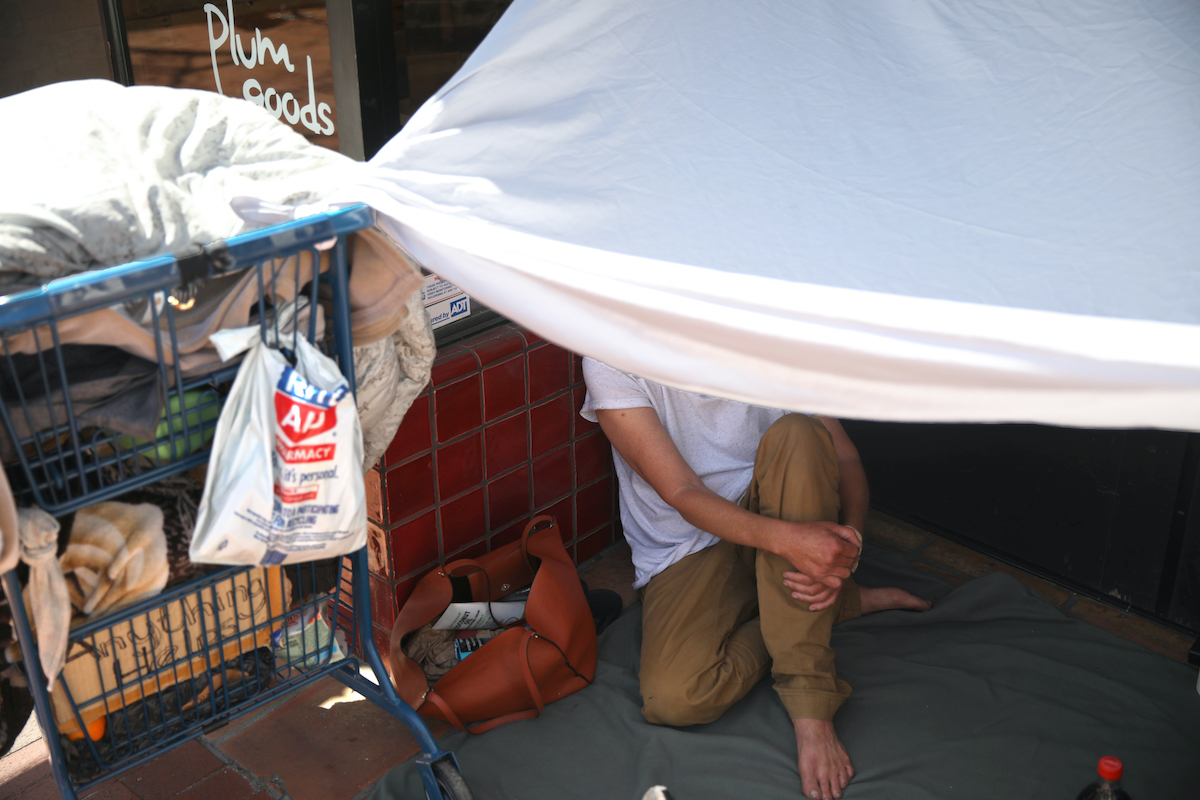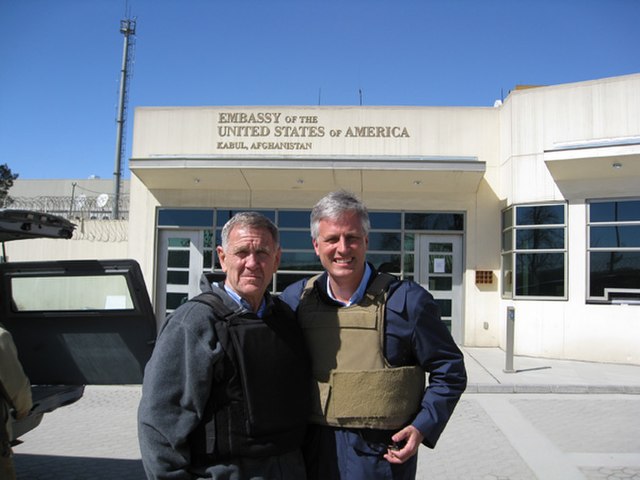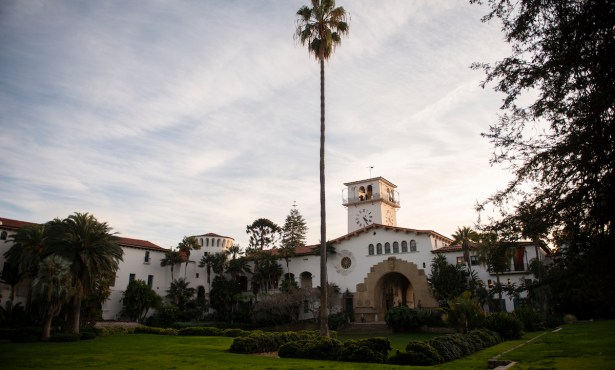Federal Judge Slams City of Santa Barbara’s ‘Sit-Lie’ Ordinance
Judge Carter Says Preventing Homeless People from Sitting or Lying on Portions of State and Milpas Streets Qualifies as ‘Selective Enforcement’

The same federal judge who blistered Donald Trump’s legal campaign to overturn the 2020 election results as “a coup in search of a legal theory” has now ruled that Santa Barbara’s “sit-lie ordinance,” which bans homeless people from sitting or lying on portions of State and Milpas streets, qualifies as “selective enforcement” and is constitutionally insupportable.
“The Santa Barbara ordinance does not provide a rational basis for distinguishing between people sitting while dining outside, people sitting on the sidewalk to watch a parade, and homeless people sitting to rest their legs,” wrote federal judge David Carter in an opinion recently published in Westlaw. “This ordinance appears to ban homeless people from ever sitting down when the City has left them no alternative. They lack adequate shelter, housing and places to rest which the city could provide.”
Judge Carter contended that City Hall could have made a more constitutionally supportable case for the ordinance by grounding it in legitimate public health concerns such as blocking intersections or access to fire hydrants. Instead, he noted, the ordinance created exceptions for people “patronizing a commercial establishment conducted on a public sidewalk.”
The ordinance was enacted in recent years in response to people on the streets sitting and lying on heavily trafficked sidewalks. The ordinance does allow sitting and lying between 2 a.m. and 7 a.m., promoting Judge Carter to opine, “The ordinance requires homeless people to remain standing for 19 hours a day. When they are finally allowed to sleep at 2 am, it is only for five hours no matter how cold and dark the night may be. …
Sign up for Indy Today to receive fresh news from Independent.com, in your inbox, every morning.
“However, unlike the city-wide bans in Jones and Martin,” Judge Carter went on, “the Santa Barbara ordinance applies in only one area of the City. This geographic limitation may ultimately mean the ban does not violate the Eighth Amendment; it may simply scatter unhoused people from downtown Santa Barbara to residential areas without adequate shelter.”
The ruling is in response to a motion by City Hall to dismiss a federal lawsuit filed on behalf of three homeless individuals by Los Angeles civil rights attorney Stephen Yagman. Yagman, well known for his combative rhetoric, accused the City of Santa Barbara of waging a “Eugenics campaign against the poor” when he filed a federal legal challenge to the city’s ordinance restricting the hours when oversized vehicles could legally park on city streets.
“This ordinance is very similar to the Nazi Nuremberg laws,” Yagman stated. “Which should not be surprising because the Nuremberg laws originated in California during the 1920s in discriminating against Asians.”
Ironically, Judge Carter’s ruling does not resolve the issue that gave rise to Yagman’s initial filing, the city’s oversized vehicle ordinance. Even more ironic, at least according to Tom Shapiro — chief litigator for the City of Santa Barbara — is that Judge Carter ruled on an issue that Yagman never brought up in his legal papers. As a result, Shapiro said, the city never presented argument or evidence in defense of the sit-lie ordinance.
“This isn’t a final ruling on anything,” Shapiro stressed. “We have evidence to present. We have an argument to make. And we will be responding.”
Yagman stated he intends to file a restraining order to stop City Hall from enforcing the sit-lie ordinance “as soon as we get off the phone.”

Support the Santa Barbara Independent through a long-term or a single contribution.




You must be logged in to post a comment.